Back in 2013, I drafted a blog post about starting, running, and selling my company — all within seven years. I never got around to publishing it because it never felt finished. There was never a “next step” that I stumbled upon, a next big idea, or serious revelation besides really just the title of the post itself and the message that it tried to convey.
Recently, I went back to this unfinished story and realized that withholding the post was almost contradictory to its message. I was putting the post on hold for the sake of some future thing(s) that hadn't happened.
Don't do that. Here's the story, and the reason why…
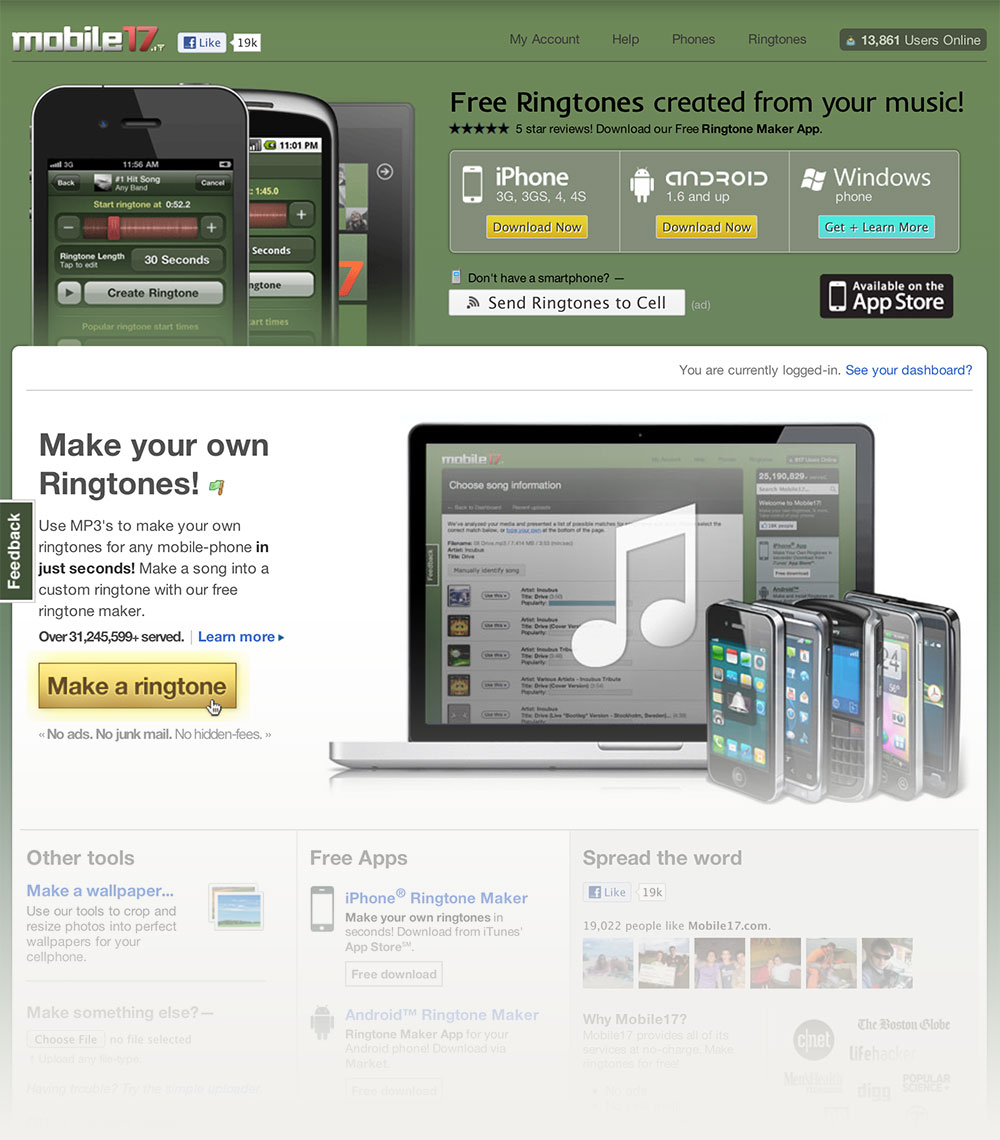
The Pre-Web 2.0 generation
In 2005, I left school. The internet was still the “wild west,” and web services that we now take for granted had yet to be invented. Phones were still “dumb,” and so we spruced them up with ringtones and sometimes Java software that was slow to launch and often clunky to use.
By browsing the web, we would find new things that we had never seen before. New software ideas, new media platforms, people's secret side-projects… all kinds of things. This was where the hobby of “browsing the web” and the need for search engines actually came from; people would “surf” because it was cool to discover new things before the onset of social media and more liberal direct sharing.
I had already started working on a number of ideas, but the one that ended up taking off was Mobile17, a simple website for making ringtones and graphics for your “dumbphone” — and later smartphones, too. The project grew to have apps for iPhone, Windows Phone 7 (and above), as well as Android. But it didn't start out as Mobile17. In fact, I didn’t have plans to start a company of that nature at all.
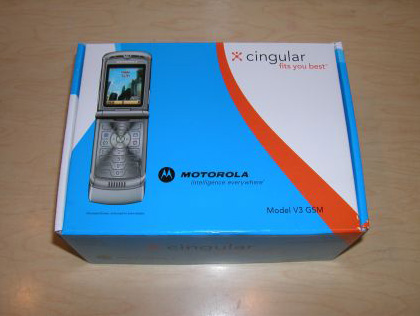
When I launched Mobile17, originally called “smashTheTONES,” it didn't have a fancy interface or company name or anything. I built the service in a weekend. It was basically a landing page that accepted an audio-file and cropping/meta information to shrink music into something that your phone could use as a ringtone. Upload an audio file, and you’d receive a text message with a download link. That was it. Pretty simple, no real engineering required. To promote the site, I linked to Digg's website from the homepage of “smashTheTONES,” hoping for traffic exchange (e.g., “As seen on Digg!”). Nowadays, Digg is a socially aggregated news site that curates and posts links from around the web, but back then it contained entirely user-contributed content. Users would “digg” news stories by clicking the “digg button” to upvote and submit things, thereby building up their user profile. (Today, Reddit functions in nearly the same way, but with more channels.)
Anyway, Kevin Rose, former TechTV/G4TechTV host, then founder of Digg, and now CEO of Hodinkee, noticed that I was plugging Digg on my blog and sending it a ton of traffic whenever a story that I wrote was featured elsewhere. He reached out, we chatted back and forth, and he later chose to feature “smashTheTONES” on The Screen Savers, a cable TV show on G4TechTV (defunct) that was popular among the tech and hobbyist crowd at the time.
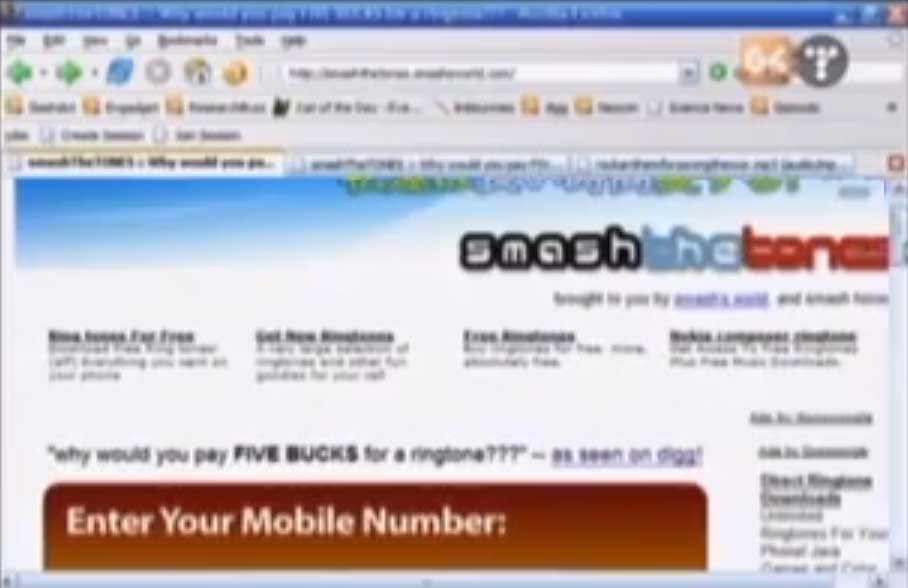
Never before had an “online ringtone maker” been widely publicized, and in under 48 hours the site went from making $0 in published ad revenue to over $200/day. Unbelievably, during this same time the site experienced extended downtime from the burst of repeat traffic. “Mobile17 will be back soon! Check back later.” is all that many users saw.
I suddenly had to rent an additional web-server and construct a queuing system. The site couldn't process everyone's ringtones at the same time, obviously, nor could it make them quickly enough to stay online without crashing.
I rushed to rebuild the site in just a day or two to get it working again. The glitch turned out to generate more revenue when I made it possible for people to pay to skip the queue. That revenue covered the cost of the servers that I eventually had to rent, and generated some side-income for me.
Keep in mind, this was still 2005-2006. Things like Amazon Web Services didn't exist, with its on-demand web-servers and dynamic resource scaling. I was leasing physical servers through hosting companies in datacenters across the country, paying thousands upon thousands of dollars per month for hardware and cabinet space.
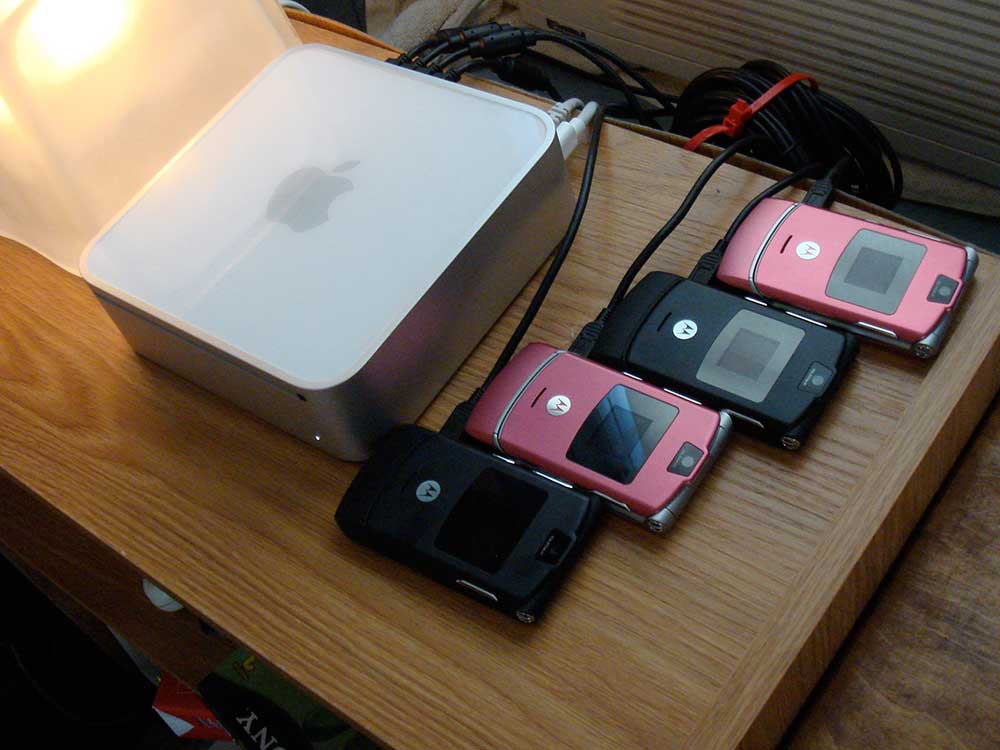
Becoming a business
The company grew. It began offering mobile applications, supported countless different phone types, and provided an online song statistics database for ringtones. I kept our operations “lean and mean,” although I did eventually end up outsourcing tech support and basic routine maintenance to a company in India after many years of doing it all myself.
I bought a few cars, raced them, started traveling, and went back to college part-time. I tried a lot of different things, and answered a lot of questions for myself early in life. But I also began to face difficult choices.
I let the company slide a bit, and the recession in 2007 and 2008 nearly killed it. I kept things afloat, heeding my instinct to protect what I had built. For a while, though, I worried my efforts would be in vain. The site was already so popular that I feared any change, even a seemingly necessary one, might bring it crashing down.
I wondered if someone would buy the entire site and business from me. Popular websites were great tools for existing startups to acquire and use to bolster their own growth, and there was a ton of this happening in Silicon Valley at the time.
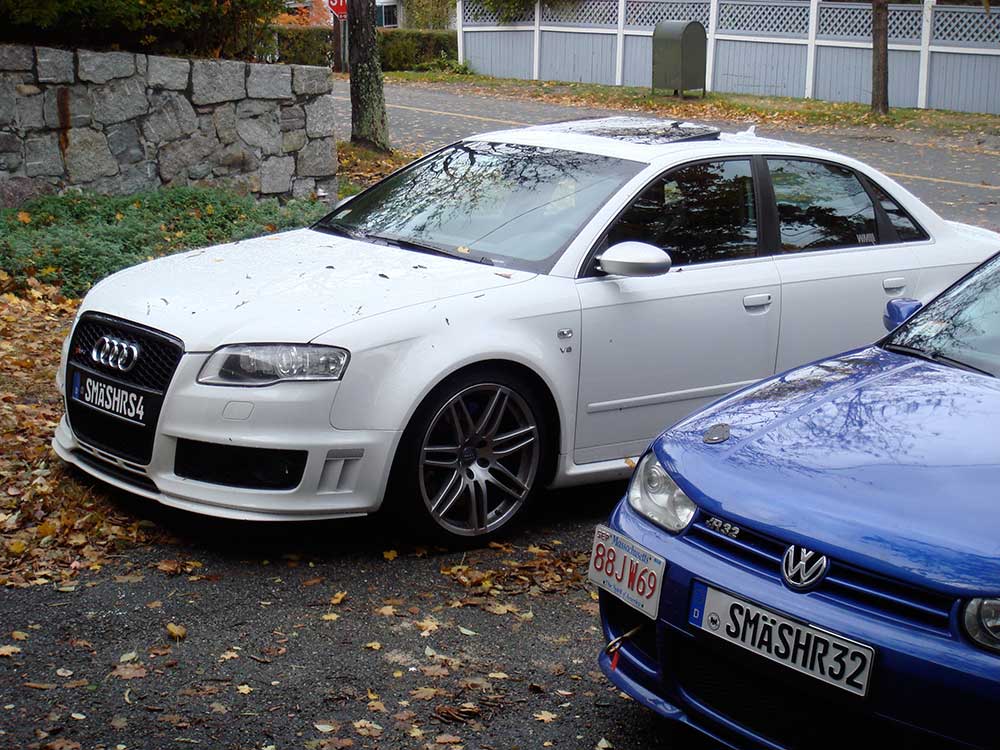
Indeed, just 12 to 24 months after starting the company, I was already receiving serious interest from companies in the mobile-space looking to acquire my brand, customers, and web-traffic. Assuming it would all be acquired, and wary of unsettling a smoothly running site, I took more time off. I didn't work to improve things as much as I could have during some of its most critical years. Looking back, this may have been a mistake. But stepping back also helped me avoid doing anything that would have devalued the company.
All the while, Mobile17 continued to be Mobile17 and generated the revenue that it generated. I focused on other projects, some hobbies, and much ridiculousness. Yet nothing else worked out in the meantime. What was I doing? And, why was I doing it?
Building back what was almost lost
The recession that started in 2007/2008 cut out a serious chunk of our revenue. I think I remember a 75% decrease within a week or two, but I may be overestimating. Regardless, it was significant. I needed to restructure the whole business and cut down costs. I refocused, realizing that the site had become seriously outdated in terms of design, focus, and function. I had to force myself to rebuild it through multiple iterations to bring it up-to-date with the latest and greatest styles and technologies that I had once strived to practice and deploy when I left school in 2005.
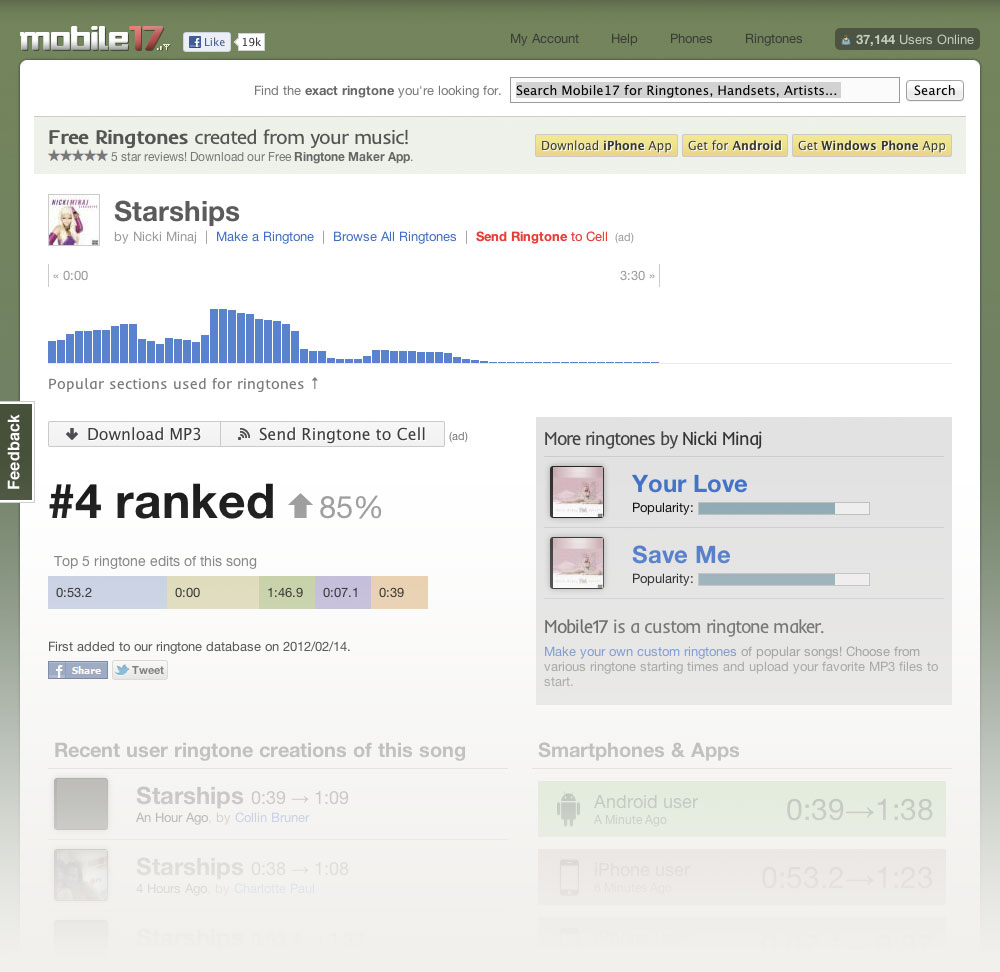
Eventually, with much caffeine and hours over a number of years, I finished building an amazing “Version 3.0” of the site. I was really happy with how it looked and worked. The new, improved Mobile17 site featured seamless integration with our own custom-built smartphone applications, and both operations and maintenance went on autopilot thanks to the outsourcing company that I hired to handle the customer service and weekly updates. I basically just oversaw everything, approved changes, then stepped in to fix any major problems.
A lot of this optimization was inspired by Tim Ferriss' book, The 4-Hour Workweek. The book's title should not be taken literally, of course, but it can help you get closer to the goal of spending less time doing more — even if you don't run your own business.
Yet I still felt the stress and strain… mainly because I knew that any number of things could happen and pull the rug out from under the company's feet. The truth is, with any business, all you can do is try to reduce risk. There is always risk. As Tim Ferriss has said of running any business, your brain feels like it's constantly “running antivirus software in the background.” He continued, “Even though the company [doesn't] take much time to run, it [is] consuming more than 10 percent of [your] mental energy.” You have to defend your business and its customer-base by always researching and staying on top of new opportunities and actively strengthening against your weaknesses.
I knew that this “Version 3.0” go-round would be less taxing than before. I had a buffer, not only financially but also mentally. I was all in again.
This helped me get over the fact that, several months before “Version 3.0” was released, the company almost lost money for the first time since its inception. For a single month, but still. I was shocked. We never again had this issue luckily, but it was a scare for sure and a reminder that everything can vanish, especially without the necessary hard work to support and maintain it.
“Version 3.0” was the first truly well-designed iteration of the product and wiped out any remaining volatility in the time that I owned it. It was something that I had cultivated through years of experience of running the company and in working through the various side-projects that I had attempted (and failed at) during the same time period. And it was the “right” product for the company… finally after nearly 5 years. I had put in the necessary hard work to turn the company around and made something incredible.
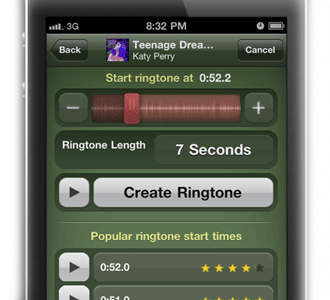
So, where did that leave me? Well, I eventually did sell the business, but I'll get into that in a minute. Instead of waiting for something to happen, instead of putting my life on hold, I chose to pursue my interests. I wanted to move to San Francisco, run the company from there, and look for a job in the tech sector to supplement the knowledge that I had obtained from working on my own. I also wanted to finish my degree, chipping away at it while doing everything else. But, I didn't want to put my life on hold entirely for school, which was the main reason why I left college in the first place in 2005.
After the launch of Version 3.0, I had hoped to find a buyer for Mobile17. I negotiated with a few different parties, but none of the deals worked out. I was devastated, having wanted to find a long-term fit for the company after working so hard to revitalize it. Yet I forged ahead, buying a one-way ticket to San Francisco for January 2012. The new year, a new city, the start of a new chapter.
Although I was a bit apprehensive, I knew moving to San Francisco was the right thing to do. I would finally see for myself what it was like to live in Silicon Valley, what all of the fuss was about in the tech community. Instead of waiting to make sure everything was lined up, I took the leap.
The Deal
I was actually in Hong Kong visiting friends for New Year’s 2012. Back in Boston, during the three days that I had to pack my things for San Francisco, a discussion rekindled the possibility of an acquisition. I had thought the deal would never happen, given that things had fallen silent previously, but now it was moving forward. Three months later, I had completed my first major company acquisition sale.
So I had realized my goal — four or five years later than planned. Maybe it was because I hadn't worked hard enough on the company at first, or maybe I hadn't possessed the skills to build a really good product back then. Or maybe there was nothing more that I could have done at an earlier point, or perhaps having the additional experience would have done more harm than good. Maybe it was just the right time given the booming smartphone-app space. I think about these questions even today, but they can’t necessarily be answered with certainty.

But again, where did that leave me? I was in shock. The company had sold, and my life was changing overnight again for the first time in 7 years. I was also exhausted, and a bit anxious, too. Suddenly my priorities shifted to my 9-to-5 job in the San Francisco tech sector and the university courses that I was still taking both locally and remotely via live-streaming. I can attest that school can be stressful, with inflexible deadlines and seemingly extreme expectations set by professors. Ultimately I left my job to focus again on school while continuing to work on some small software projects and apps at the same time.
College can be seriously worth it if you want to broaden your knowledge and understanding of things that you would not normally encounter. It's not all theoreticals, either. There are awesome things like analog and digital electronics, study-abroad programs, and courses that can build a stronger foundation in what you are already good at or familiar with. These are experiences that you can't replicate just by working at a job or on a project. School can force you to spend months on something that you would never be able to commit to doing in the working or creative world; these experiences can change your thinking — and your life. This can drastically reshape your abilities. The value of a quality education outweighs the time sacrificed at an early age because it stays with you for the rest of your life. But again, you can’t put your life on hold for school, or for work, or an idea, or anything else. You have to live your entire life all at once, and that can be challenging. With school, you must apply what you learn as you are learning it. I've done this by studying and building apps and small businesses simultaneously, putting ideas to into practice.
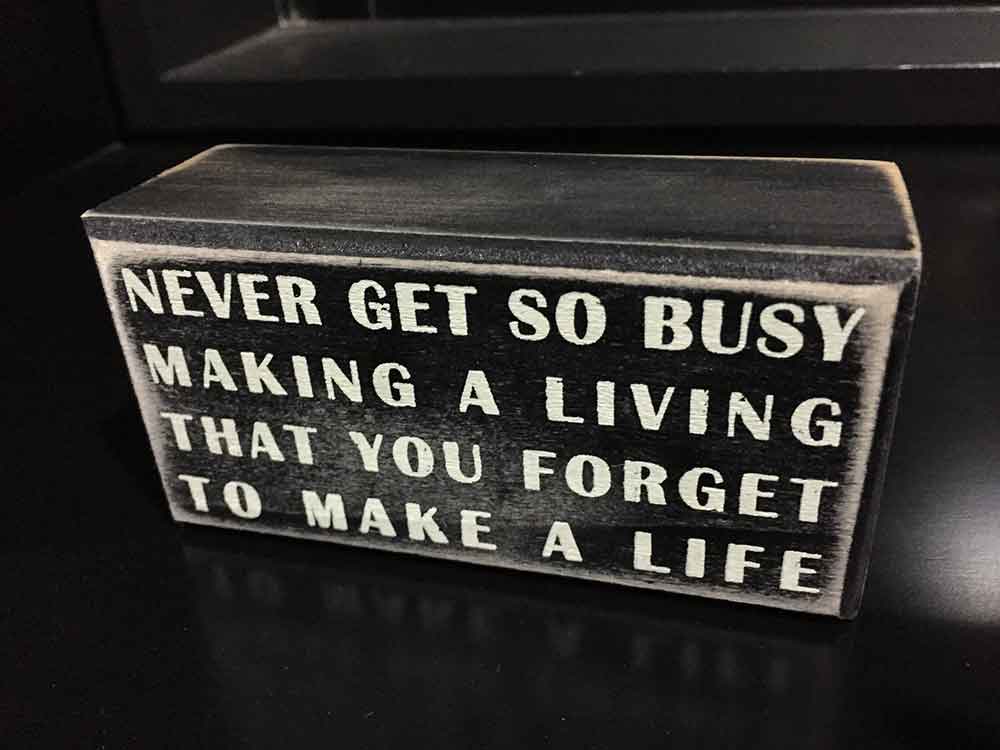
So, seriously… don't put your life on hold. The best decisions that I have made in the past several years have come from pushing myself to do things that I know that I have always wanted or needed and been able to do, but wasn’t doing. Somehow I had been holding off on my plans indefinitely, or waiting for some dream time when things were better or easier (for whatever reason). But you have no idea if things will get better, or if they will get more difficult. We may procrastinate because we seek more information, but in reality the information isn't always there. And actually we learn more by taking the leap, by trying something, by moving ahead regardless. We have no idea what the future holds, but by pushing ourselves to do at least some of the things we imagine, we may catch glimpses of it.
Even if these things that you want to do seem stupid or scary or foolish or impossible or unimportant… you'll answer questions by forging ahead.
Once I pushed myself to visit Tokyo, Japan. Now, I live there. Not forever, but for now. I was apprehensive about going at first, but everything was fine. In fact, it was amazing. If I hadn't taken the leap and just gone, maybe I would be living somewhere else right now… and maybe that would be better, or maybe worse, or maybe just different.
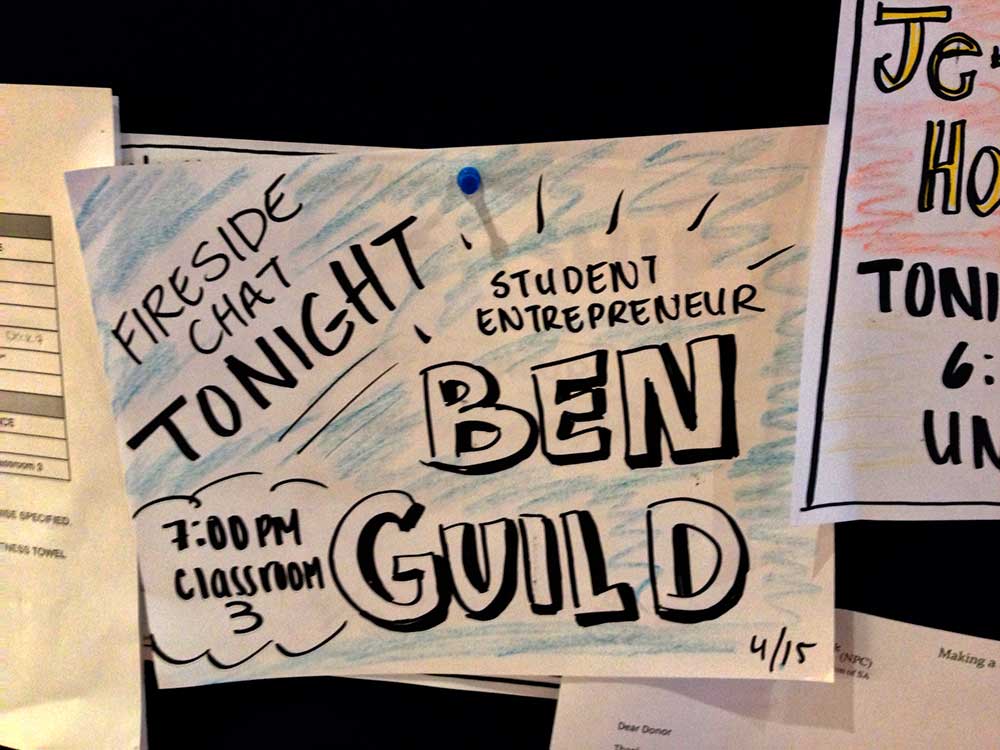
Resetting
I used to believe that taking time off entirely was silly because balancing everything (school, ideas, work, travel, etc.) was important and worthwhile. And taking a break can itself often feel extremely stressful. I always want to be busy, and so it can be hard to disconnect. Yet sometimes it's important to reset, think, and actually refocus.
After my company was acquired, I felt like I should immediately start some new business, or company, or app straight away. That seemed like the best possible and most important thing that I could do with my time, at that time. “There’s no rush,” Naval Ravikant told me. “You'll be committed for 5 years to whatever you choose, so what's the hurry?” he asked. I initially resisted his advice to “relax,” thinking that I could get away with finding the next big thing, the next idea.
Just FYI, there's nothing else here. (@ 0°N 0°W 0°E 0°S) [pic]: http://t.co/N4Jl8lSulY
— Ben Guild (@benguild) April 5, 2013It took me nearly a year to settle down and realize that Naval was right. I eventually participated in an amazing program called Semester at Sea as part of my educational journey, and I think that at some point, perhaps near the center of the earth (0° N, 0° S, 0° E, 0° W) with nobody else but us for miles, I finally let go.
Looking beyond
I still work on tech projects and ideas, I just finished my final few university credits in 2015, and I know there’s lots ahead. But I also know that I have overcome some formidable obstacles on this wild, alternate path that my life has been on. And I have answered many of my own questions in the process. I'll never have to ask those same questions again, which is my biggest victory and my greatest wealth.
Life can feel like a giant boulder made of questions, and we can't do much more than just slowly chip away at it into smaller pieces or dust over time. By putting your life on hold, waiting for some other day or month or week or year when you have more freedom, or more money, or more flexibility to come back and chip away at it, you may find that the boulder never really shrinks in size. So just get to work.
Time is the one, most valuable thing that we cannot control; we each receive a finite amount that is never revealed to us. Many of the rich and powerful go to great lengths to extend theirs, but all of us have the ability to make the most of our own time through the decisions that we make. If we only get this one chance, the most important thing that we can choose to do for ourselves is to answer our questions to see where our lives really should take us. From there, perhaps we will find what it is that we are really looking for.
"When a man awakens to reality he realizes in that moment of enlightenment that his normal experience of things was as unreal as in a dream"
— Ben Guild (@benguild) February 20, 2015There's no expectation in life for you to do anything in particular. You don’t have to visit the pyramids in Egypt or be promoted to CEO or to become a rockstar. Whatever you do, you are also working to discover more about yourself and answer the questions that will best guide you through life. We often get caught up running someone else's race and forget to stop and figure out what we actually want to do and how to do that, then take the time to figure out what it is in fact that we really should do. If I hadn't left school to code, I would have never ended up here. It was something that I felt that I had to do, and maybe it was for better, or maybe it was for worse. Going back to school was another thing that I felt that I had to do. Maybe all of this was completely by chance. But by any measure, for me, the value lies in having learned so much about the paths to follow through the paths that I have traveled.

We all travel our own paths — sometimes unexpected or less familiar ones. The journey can be daunting, but you have to start somewhere. Go. Do. Learn. There’s no better time. Don't put your life on hold.